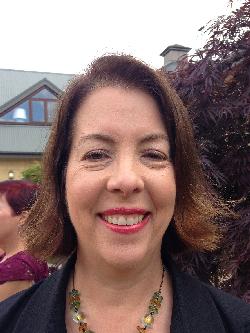Jesus chooses the unlikely
- Details
- Written by: Jennifer Lumsden
 My parents met in China after travelling from opposite ends of the world for language study in preparation for mission work. Mum from Toronto and Dad from Melbourne. After clandestine "dates" in the cemetery, the only place with any privacy, they married and left for Malaysia, as the Communists closed in.
My parents met in China after travelling from opposite ends of the world for language study in preparation for mission work. Mum from Toronto and Dad from Melbourne. After clandestine "dates" in the cemetery, the only place with any privacy, they married and left for Malaysia, as the Communists closed in.The challenge of village life was formative for Ewan and Priscilla. They countered the isolation by establishing a foundation of love, service and respect for each other and trusting the Lord Jesus. One strategy agreed upon early was to avoid complaining because they knew it would consume their energy, wear them down and distract them from their work.
The strong foundation stood them in good stead and, I wonder if it would have developed to the same extent with a more "ordinary" start to married life, we will never know.
A young girl, Dorca came to work for them doing household tasks and some childcare of my older siblings. Mum taught Dorca English and, in turn, she helped Mum with Cantonese.
Born in a low-income family, Dorca was illiterate and did not have access to school. She would not have expected to meet an educated English speaking man, let alone one who treated her with respect and courtesy. Dad treated everyone the same way and did not foresee how significant it would be for Dorca. For Dorca seeing up close how Dad treated Mum, how they cared for and helped each other, and Dad’s kindness and respect towards Dorca surprised her and led Dorca to consider the God my parents loved and spoke about. The God who had brought them far from their home to share Jesus with strangers, the God of Love who did care about people without means. Subsequently, Dorca took the step of faith in Jesus.
Following the years in Malaysia, we settled in suburban Sydney and the local Anglican parish.
9 Ridiculously Practical Ways for Male Leaders to Empower Female Leaders in the Church
- Details
- Written by: Christopher Appleby

From CBE International:
There are many male leaders in the church who want to empower women leaders, but they’re stuck. They want to empower, but don’t know how to go about doing it. As a male leader, I have a strong conviction of the need to empower women in their God-given talents, passions, and leadership.
A Christian response to domestic violence
- Details
- Written by: Bishop John Harrower
 An address by Bishop John Harrower, Hobart, 29 April 2004 - originally on the Anglican Diocese of Tasmania website, republished by permission.
An address by Bishop John Harrower, Hobart, 29 April 2004 - originally on the Anglican Diocese of Tasmania website, republished by permission.

I am more often in the media because of the issue of sexual abuse by clergy, than I am for domestic violence. There are, however, some parallels between the two issues. I believe we can learn from some of the mistakes the church worldwide has made in responding to these issues in the past. Mistakes that led to more children being sexually abused - or in the case of domestic violence, more women and children suffering deep and long lasting damage. (Domestic violence includes physical abuse, psychological and emotional abuse, sexual manipulation and abuse, isolation, economical deprivation and stalking.)
The first response of the church world wide to allegations of sexual abuse by clergy, was 'not to hear', because the belief was 'that good Christian men, who we knew, could not behave like that.' So the church's first response was 'not to hear' and its consequence, 'not to believe.' We face the same tendency when told of domestic violence.
The great error of history
- Details
- Written by: Mimi Haddad
The great error of history
"So God created human beings in his own image, in the image of God he created them; male and female he created them"(Genesis 1:27, TNIV).
A noted church historian once observed that the great error of history is presumption-presuming that one has grasped the necessary facts related to a person, a group or situation when in reality one is largely uninformed. Perhaps you can recall a time in your own life when presumption led you into deep waters. I certainly can.
Some of the deepest waters in American history are the result of acting on presumptions rather than facts. Consider the presumption that created and legitimized American slavery. Slavery in the US was based on the mistaken belief that Africans as an ethnic group were inferior. In his towering book, The Civil War as a Theological Crisis, historian Mark Noll said that “so seriously fixed in the minds of white Americans, including most abolitionists, was the certainty of black racial inferiority that it overwhelmed biblical testimony about race, even though most Protestant Americans claimed that Scripture was in fact their supreme authority in adjudicating such matters” (Noll p. 73).
Women Teaching Men
- Details
- Written by: Graham Cole
WOMEN TEACHING MEN THE BIBLE: WHAT'S THE PROBLEM?
I first became aware very early on in my Christian life that women's ministry in the presence of men was controversial. As a new Christian in a Brethren assembly I found myself in the midst of a debate as to whether women could pray aloud in the morning meeting (communion) in the presence of men. The elders resolved eventually that they could not because of the Bible was against it. In particular, 1 Timothy 2:8 shows – so the argument ran - that Paul believes that only men (tous androus) should pray in the assembly: "I desire that in every place men should pray" (ESV). That was in the 1960s.
Many years later, in the 1980s, I was on mission with a team of theological students in Sydney. I asked one of the senior students, a woman, to speak evangelistically at a girl's high school. It seemed to make a lot of sense. But she was not only reluctant but became extremely anxious. I had a pastoral situation on my hands. I soon found out that she had been taught that it was against the bible for her to preach in the presence of any males on the team.

